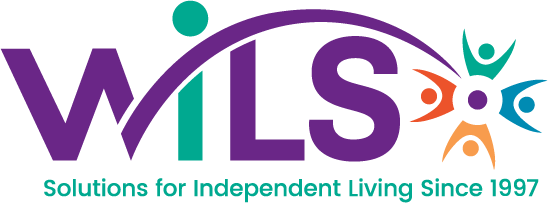
Why Advocacy Matters
Advocacy matters because access, dignity, and independence don’t happen by accident—they happen when people speak up and systems are held accountable. At WILS, advocacy means standing alongside people with disabilities to remove barriers, influence policy, and ensure voices are heard where decisions are made. From accessible housing and transportation to inclusive communities and fair treatment, advocacy helps turn rights into real-life opportunities, empowering individuals to live independently and fully participate in the communities they call home.
Support Independent Living in Missouri
Help strengthen independence in Missouri by supporting the services that make it possible. Centers for Independent Living and the Consumer Directed Services (CDS) program provide the practical, everyday supports people with disabilities rely on to live safely in their own homes and stay connected to their communities. You can make a difference by sharing why these programs matter to you—talk with friends and family, spread the word, and reach out to your elected officials with your story. When Missouri invests in independent living supports, individuals who can thrive at home with the right assistance are able to remain where they belong: in their homes, with dignity, choice, and independence.
Share Your Story
Write a letter to state representatives to let them know what WILS and the CDS program means to you. Tell them what would happen if you did not have WILS. What kinds of things would you have to stop doing?
You can say:
- Who you are and where you live in Missouri
- How WILS or the CDS program helps you live independently
- What a typical day looks like, some of the things you do, or challenges you face
- What would change in your life if WILS or the CDS program didn’t exist
- Why you believe programs like WILS and CDS are worth funding
Self-Advocacy
WILS supports people with disabilities as they learn to speak up for what they need and what they want. We help consumers practice clear communication, write letters, and feel prepared for meetings—so they can share their goals with confidence.
Our goal is simple: to help people understand their rights and access the services and supports that make independent living possible. WILS also works with local, state, and federal partners to reduce barriers and expand equal access, so our communities are more welcoming, inclusive, and accessible for everyone.
Disability Advocacy
Becoming involved in disability advocacy and self advocacy are critical to independence and it starts with knowing more about disability rights.
- The National Council on Independent Living (NCIL) has an Advocacy & Action Center that allows you to contact your elected officials about the most pressing concerns of the Independent Living Movement.
- The Americans with Disabilities Act (ADA): The ADA is a civil rights law that prohibits discrimination against individuals with disabilities in all areas of public life, including jobs, schools, transportation, and all public and private places that are open to the general public.
- The Fair Housing Act: is a federal act in the United States intended to protect the buyer or renter of a dwelling from seller or landlord discrimination.
- The Rehabilitation Act: prohibits discrimination on the basis of disability in programs conducted by federal agencies, in programs receiving federal financial assistance, in federal employment, and in the employment practices of federal contractors.
- The Individuals with Disabilities Education Act (IDEA): is a four-part (A-D) piece of American legislation that ensures students with a disability are provided with Free Appropriate Public Education (FAPE) that is tailored to their individual needs.
Advocacy Benefits
- 96.4% of the individuals who received advocacy services in obtaining access to benefits, services and programs were satisfies with the assistance they received
- 82.1% indicated they gained knowledge, skill and/or independence from the Advocacy service
- 92.8% indicated the Advocacy service they received made a positive change in their life
- “Helped me to remain in my home.”
- “Increased my independence.”
- “People with disabilities need to be independent and to choose things that give us independence advocacy helped me with these choices.”
- “I was able to obtain food stamps.”
- “Helped me to receive cheaper rent.”
- “Gave me the ability to learn a new skill to go back to work.’
- “Helped me get my disability so I can pay my bills.’
- “I learned more about Medicaid.”
- “Helped me be able to choose who I wanted as my care attendant.”
- “I understand how to stand up for myself.”
- “I am better prepared to speak up for myself.”
